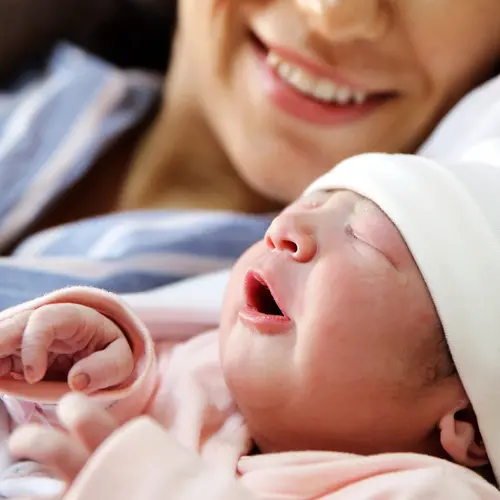Hemorrhoids, also known as piles, are veins in or around your anus that have become swollen. Many women will experience hemorrhoids for the first time during pregnancy or after giving birth. While this can be an extra discomfort while taking care of your new baby, there are several ways to ease your symptoms.
What Causes Postpartum Hemorrhoids?
Hemorrhoids are common during the third trimester of pregnancy and one month after delivery. In a study of 280 women who gave birth, 43% had hemorrhoids. Many of these women had related conditions, such as constipation during pregnancy, and pushing for more than 20 minutes during delivery.
Hemorrhoids are caused by pressure on the veins in your rectum or anus. Veins have valves to help the blood flow toward your heart. But when these valves are weakened because of pressure, blood can pool in the veins. This makes them swell up, similar to the way varicose veins form.
Pregnant women have the additional weight of their babysitting on their abdomen and pelvis. This makes it hard for the blood to return from the pelvis area.
Many pregnant women also have constipation, or fewer than three bowel movements a week. This can be due to:
- Hormonal changes that affect the digestive system
- Diet changes during pregnancy
- Moving less
- Too much iron due to taking iron supplements
- The growing baby pressing on the mother’s intestines and affecting digestion
Constipation is also common after giving birth. In many women, this could be caused by a combination of changing hormones, pain medication, dehydration, or a fear of pain from their hemorrhoids or episiotomy site (a surgical cut made between the vagina and anus as you give birth).
Hemorrhoids can get worse with straining and constipation. If you have hemorrhoids when you’re pregnant, you'll likely experience worse postpartum hemorrhoids.
Symptoms of Postpartum Hemorrhoids
Hemorrhoids can be internal, where they form inside the rectum. They can also be external, located around the anal opening. Symptoms of postpartum hemorrhoids include:
- Pain in the anal area
- Itchiness in the anal area
- Bleeding during bowel movements
- Sensitive lumps near the anus
What to Do When You Have Postpartum Hemorrhoids
There are a number of ways to help relieve the discomfort from your hemorrhoids, including:
Eat a high-fiber diet. Try to soften your stools by eating foods that are high in fiber. High-fiber foods include vegetables like broccoli and green peas, fruits like pears and apples, legumes like lentils and black beans, as well as whole grain cereals and breads.
Drink lots of water. If you’re breastfeeding, you’ll need at least eight cups of water a day. Have a glass of water every time you nurse your baby.
Stool softener. Talk to your doctor about using a stool softener to ease pain during bowel movements. Stool softeners make the stool easier to pass and are generally considered safe during and after pregnancy.
Don’t sit too long. Sitting for long stretches of time increases pressure on the veins in your anus. Instead, lie down as much as possible, such as when you’re nursing.
Use a pillow. When you have to sit down, sit on a pillow or foam doughnut.
Get some exercise. Try to move around more, even if it’s just a short walk. Exercise can also help prevent constipation. Check with your doctor before you start any exercise program after giving birth.
Apply ice. A study of 200 postpartum women found that cold gel pads relieved pain during recovery and increased their comfort. Apply an ice pack for 20 to 30 minutes, several times a day. Wrap the ice pack in a cloth so that it isn’t in direct contact with your skin.
Witch hazel.Witch hazel can help reduce the swelling and provide cool relief. Store your witch hazel in the refrigerator. Apply using cotton balls or pads. You can also add some witch hazel when you soak in your tub.
Warm water soak. Soak in a tub or take a sitz bath. Fill the tub with warm (not hot) water. It only takes a couple of inches of water for a sitz bath. Soak for about 15 minutes, a few times a day. This will help your hemorrhoids to shrink.
Most cases of postpartum hemorrhoids improve after a few days or weeks. If not, contact your doctor.


